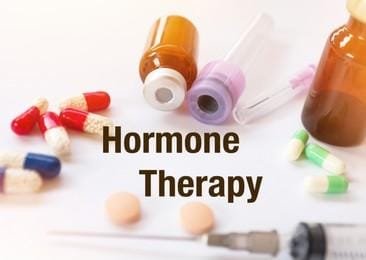Aging is an inevitable part of life, but how we age is something we can influence. As we grow older, our bodies undergo significant changes, including a decline in hormone levels. This decline can lead to a host of symptoms, such as fatigue, weight gain, reduced muscle mass, and a general sense of losing vitality. For many, this raises the question: Can hormone therapy help with aging and vitality?
In this article, we’ll explore the science behind hormone therapy, its potential benefits, risks, and whether it could be the key to maintaining youthfulness and energy as we age.
Understanding Hormones and Aging
Hormones are the body’s chemical messengers, regulating everything from metabolism and energy levels to mood and sexual function. As we age, the production of key hormones like testosterone, estrogen, progesterone, and growth hormone declines. This natural process, often referred to as “hormonal aging,” can lead to:
- Decreased energy and stamina
- Loss of muscle mass and strength
- Increased body fat, particularly around the abdomen
- Reduced libido and sexual performance
- Mood swings, depression, and anxiety
- Poor sleep quality
- Cognitive decline and memory issues
These changes can significantly impact quality of life, making it harder to stay active, engaged, and healthy. This is where hormone therapy comes into play.
What Is Hormone Therapy?
Hormone therapy, also known as hormone replacement therapy (HRT), involves supplementing the body with synthetic or bioidentical hormones to restore levels to a more youthful range. It’s commonly used to address symptoms of menopause in women and andropause (male menopause) in men.
There are two main types of hormone therapy:
- Bioidentical Hormone Therapy: Uses hormones that are chemically identical to those produced by the body. These are often derived from plant sources and customized to individual needs.
- Synthetic Hormone Therapy: Uses lab-created hormones that are similar but not identical to natural hormones.
Both approaches aim to replenish hormone levels, alleviate symptoms of aging, and improve overall well-being.
Benefits of Hormone Therapy for Aging and Vitality
- Increased Energy and Stamina
One of the most noticeable benefits of hormone therapy is a boost in energy levels. Restoring hormones like testosterone and thyroid hormones can help combat fatigue, allowing individuals to stay active and engaged in their daily lives. - Improved Muscle Mass and Strength
Hormones like testosterone and growth hormone play a crucial role in maintaining muscle mass. Hormone therapy can help reverse age-related muscle loss, making it easier to stay strong and physically active. - Enhanced Libido and Sexual Function
Declining hormone levels often lead to reduced sexual desire and performance. Hormone therapy can reignite libido and improve sexual health, contributing to a more fulfilling life. - Better Mood and Mental Clarity
Hormones influence brain function and mood. By balancing hormone levels, therapy can alleviate symptoms of depression, anxiety, and brain fog, promoting mental clarity and emotional well-being. - Weight Management
Hormonal imbalances can make it difficult to maintain a healthy weight. Hormone therapy can help regulate metabolism and reduce stubborn fat, particularly around the abdomen. - Improved Bone Density
Hormones like estrogen and testosterone are essential for bone health. Hormone therapy can help prevent osteoporosis and reduce the risk of fractures in older adults. - Better Sleep Quality
Hormonal changes often disrupt sleep patterns. Restoring hormone levels can improve sleep quality, leading to better rest and recovery.
Risks and Considerations
While hormone therapy offers numerous benefits, it’s not without risks. Potential side effects and concerns include:
- Increased Risk of Blood Clots: Particularly with synthetic estrogen therapy.
- Breast Cancer Risk: Some studies suggest a link between long-term hormone therapy and an increased risk of breast cancer in women.
- Prostate Issues: In men, testosterone therapy may exacerbate prostate problems.
- Mood Swings and Irritability: Improper dosing can lead to emotional instability.
- Cardiovascular Risks: Hormone therapy may increase the risk of heart disease in certain individuals.
It’s essential to work with a qualified healthcare provider to determine if hormone therapy is right for you. Personalized treatment plans, regular monitoring, and lifestyle adjustments can help minimize risks and maximize benefits.
Who Is a Good Candidate for Hormone Therapy?
Hormone therapy isn’t for everyone. Ideal candidates are individuals experiencing significant symptoms of hormonal decline that impact their quality of life. Common signs include:
- Persistent fatigue and low energy
- Unexplained weight gain or difficulty losing weight
- Loss of muscle mass and strength
- Reduced libido or sexual dysfunction
- Mood swings, depression, or anxiety
- Poor sleep quality
- Cognitive decline or memory issues
Before starting hormone therapy, a thorough evaluation is necessary. This typically includes blood tests to measure hormone levels, a review of medical history, and a discussion of symptoms and goals.
Lifestyle Factors to Support Hormone Therapy
While hormone therapy can be highly effective, it works best when combined with a healthy lifestyle. Here are some tips to enhance the benefits of hormone therapy:
- Eat a Balanced Diet: Focus on whole, nutrient-dense foods that support hormone production, such as lean proteins, healthy fats, and plenty of fruits and vegetables.
- Exercise Regularly: Strength training and cardiovascular exercise can help maintain muscle mass, boost metabolism, and improve overall vitality.
- Manage Stress: Chronic stress can disrupt hormone balance. Practice stress-reducing techniques like meditation, yoga, or deep breathing.
- Get Quality Sleep: Aim for 7-9 hours of sleep per night to support hormone regulation and recovery.
- Avoid Toxins: Limit exposure to endocrine-disrupting chemicals found in plastics, pesticides, and personal care products.
Conclusion: Is Hormone Therapy the Key to Aging Gracefully?
Hormone therapy holds significant promise for those looking to combat the effects of aging and reclaim their vitality. By restoring hormone levels to a more youthful range, it can alleviate symptoms like fatigue, weight gain, low libido, and mood swings, helping individuals feel more energetic, strong, and engaged in life.
However, hormone therapy is not a one-size-fits-all solution. It requires careful consideration, personalized treatment plans, and ongoing monitoring to ensure safety and effectiveness. If you’re considering hormone therapy, consult with a qualified healthcare provider like myself, Dr. Zaar, to explore your options and determine the best approach for your unique needs.
Aging may be inevitable, but how we age is within our control. With the right strategies, including hormone therapy, we can embrace the later years of life with vitality, strength, and joy.
If you learn more about Hormone, Please visit the drzaar.com










